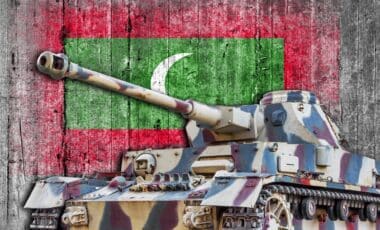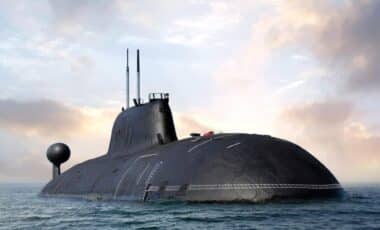For British writer Rudyard Kipling, the British Empire was the culmination of what, in his imperialist view, was Britain’s destiny and God’s will. He was born in India in 1865; Queen Victoria was on the throne and she would rule over twenty-four percent of the land area on planet Earth: that consisted of 412 million people and 13,700,000 square miles where the Union Jack waved. For Kipling, the empire upon which the sun never set was, for an Englishman, the British Manifest Destiny.
Kipling’s loyalty to his homeland was matched by his disdain for Germany; according to Kipling, there were two categories of the species: human beings and Germans. For Kipling, fighting the Germans was a crusade to preserve civilization and no sacrifice was too great. When the world learned of the brutal treatment of Belgium at the bayonets of the invading German, Kipling expressed his outrage in rhyme:
For all we have and are, For all our children’s fate,
Stand up and take the war, The Hun is at the gate!
Kipling had attended the United Services College, a military school, and he sent his son John to Wellington College, an officer preparatory school. Kipling was an affectionate father to the son who exhibited none of his father’s literary abilities; John Kipling preferred playing cricket. At age 17, the boy wanted to join the Navy but his eyesight was poor—so bad that he was unable to read the second line of an optician’s eye exam chart—and he didn’t meet the Navy’s requirements.
But Kipling’s son shared his father’s martial zeal, and his mother agreed that the cause to protect the world against German barbarism superseded personal feelings. Mrs. Kipling, an American, wrote to her mother, “The world must be saved from the German … one can’t let one’s friends’ and neighbours’ sons be killed in order to save us and our son.” The Kiplings knew that the math was against the junior officers, higher than for other ranks. The average length of time that a junior officer survived on the front lines was six weeks before he was either wounded or killed.
But the war was one of principle and saving civilization was the underlying theme. John Kipling, still just a teenager, wanted to go and his father intended to make that happen.
Kipling knew a lot of people and some of those in his network were people of influence. Kipling was able to obtain a commission for his son. Second Lieutenant John Kipling was placed in charge of a platoon in the Irish Guards second battalion and headed off to the Western Front to fulfill his father’s dream of fighting for England.
 John Kipling.
John Kipling.
Fifty-four French and thirteen British divisions were in position at Loos on September 25, 1915. Five times, the British tried to push past the Germans at the Bois Hugo Forest; with the toll of casualties at eighty percent, Loos represented a higher rate of carnage than at any prior battle. The names of the soldiers killed on the first day of battle took up four columns in the London Times the next morning. The Allies stopped trying to overpower the Germans on September 27 but by then, John Kipling was dead, although no one knew it yet.
On October 7, 1915, a notice in the Times reported John Kipling as wounded and missing. His parents had hope. They went to the hospitals where he might have been taken. They asked members of the Dutch and Swedish monarchies to contact the Germans to find out if John Kipling had been taken prisoner. They made up fliers to drop over the German lines.
The Kiplings met with other soldiers who had served in their son’s unit and were able to piece together a possible account of what might have happened. He may have lost his glasses and, unable to see, wandered away from his fellow soldiers. One soldier said that while storming the location where a machine gun was located, John Kipling was shot in the head, a miserable and painful death that blew off part of his face. His body was placed in a shell hole, but the battlefield had been shelled extensively and would undergo shelling for three more years.
In the end, Kipling, several fellow officers, and twenty-seven soldiers serving with them lost their lives. The Kiplings had lost their son but despite their efforts, the body could not be found.
Rudyard Kipling, drowning his grief in his pen, wrote a wartime history of the Irish Guards in which his son had served. He also wrote a poem, My Boy Jack, a simple and haunting tribute to the loss of a son in war. He devoted time working with the Commonwealth War Graves Commission which was addressing the enormous problem of soldiers whose remains were missing or whose bodies had not been buried. Along with three renowned architects charged with designing the cemeteries and memorials, Kipling was made the literary advisor creating the inscriptions on the tombstones.
For Kipling, the fiery certainty of his earlier poem was replaced by a resigned awareness that while the war may have been noble, the leaders who planned it were inept. If any question why we died, tell them, because our fathers lied.
One hundred years after the end of World War I, the commitment to honor the memory of those who died remains, particularly those whose bodies could not be claimed for burial. Decades after the War to End all Wars ended, John Kipling’s grave was found in the St. Mary’s Advanced Dressing Station near Loos. The Commission confirmed that the body in the grave was that of John Kipling.








